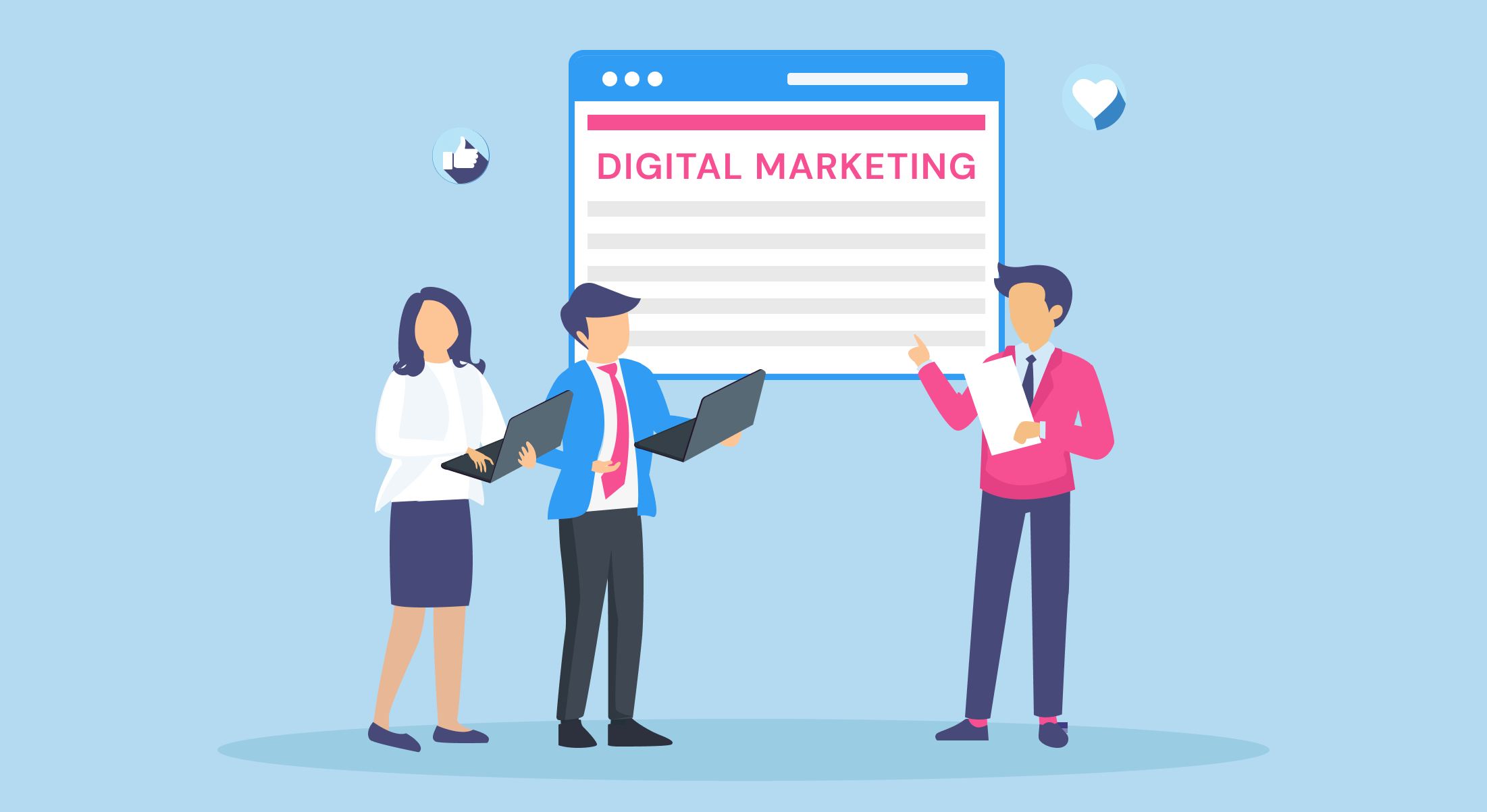
The Ultimate Guide to Choosing a Small Business Marketing Agency
In today's competitive marketplace, having a well-executed marketing strategy is essential for the success of any small business. However, as a small business owner, you may lack the time, resources, or expertise to handle your marketing efforts effectively. This is where a marketing agency can play a crucial role. By outsourcing your marketing needs to a professional agency, you can focus on running your business while experts handle your marketing initiatives. But with so many marketing agencies vying for your attention, how do you choose the right one? In this ultimate guide, we will walk you through the process of selecting the perfect small business marketing agency for your needs.
Understanding the Role of a Marketing Agency
Before diving into the selection process, it's important to understand the role of a marketing agency in helping small businesses grow. A marketing agency is a team of professionals who specialize in creating and implementing effective marketing strategies to promote a business, attract customers, and increase sales. They have the expertise, tools, and resources to develop a comprehensive marketing plan tailored to your business goals.
Marketing agencies often conduct in-depth market research to understand consumer behavior and industry trends. This research forms the foundation of their strategies, ensuring that every marketing effort is targeted and impactful. From identifying the most effective advertising channels to crafting compelling messaging, marketing agencies work tirelessly to maximize your business's reach and impact.
Defining Marketing for Small Businesses
Marketing for small businesses involves a range of activities aimed at reaching and engaging potential customers. It encompasses everything from market research and branding to advertising and digital marketing. A marketing agency understands the unique challenges faced by small businesses and can design strategies that work within your budget and resources.
Small businesses often struggle with limited resources and fierce competition. A marketing agency can help level the playing field by developing creative and cost-effective campaigns that resonate with your target audience. By focusing on the specific needs and goals of your business, they can tailor their approach to deliver maximum results within your constraints.
Importance of Marketing in Business Growth
Marketing is not just about promoting your products or services; it is a crucial driver of business growth. Effective marketing helps generate brand awareness, build a strong customer base, establish credibility, and drive sales. By partnering with a marketing agency, you can tap into their expertise to leverage various marketing channels and tactics to propel your business forward.
Furthermore, marketing agencies provide valuable insights and analytics to measure the success of your campaigns. By tracking key performance indicators and analyzing data, they can refine strategies for optimal results. This data-driven approach ensures that your marketing efforts are continuously optimized for maximum impact and return on investment.
Key Factors to Consider When Choosing a Marketing Agency
Now that you have a clear understanding of the role of a marketing agency, let's explore the key factors to consider when choosing the right one for your small business:
Choosing a marketing agency is a crucial decision for any small business looking to enhance its brand presence and reach its target audience effectively. To ensure you make the best choice, there are several additional factors you should take into consideration.
Agency's Experience with Small Businesses
When researching potential agencies, pay attention to their experience working with small businesses. Small businesses have unique needs and constraints, so it's crucial to partner with an agency that has a proven track record of success in the small business space. Look for case studies or testimonials showcasing their previous work with businesses similar to yours.
Furthermore, consider scheduling a consultation with the agency to discuss how they have helped small businesses overcome challenges similar to yours. This direct interaction can give you a better sense of their expertise and approach in addressing the specific needs of small businesses.
Services Offered by the Agency
Consider the range of services offered by the agency. Do they provide a comprehensive suite of marketing services, including digital marketing, social media management, content creation, branding, and website design? Assess whether their services align with your business goals and the areas where you need the most support.
In addition to the services listed, inquire about any specialized services or emerging trends that the agency can leverage to give your small business a competitive edge in the market. A forward-thinking agency that stays abreast of the latest marketing strategies and technologies can significantly benefit your business's growth and visibility.
Agency's Reputation and Reviews
Before making a decision, take the time to research the agency's reputation and read reviews from previous clients. Look for agencies with positive feedback and a solid reputation in the industry. Reviews can provide valuable insights into the agency's professionalism, reliability, and the results they have achieved for other businesses.
Furthermore, don't hesitate to ask the agency for references from past and current clients. Speaking directly with these references can offer a deeper understanding of the agency's working style, communication practices, and the overall impact of their marketing strategies on business growth.
Setting Your Marketing Goals
Once you have shortlisted potential agencies based on the above criteria, it's time to define your marketing goals. Before meeting with potential agencies, take the time to assess your business needs and set realistic expectations.
When setting your marketing goals, it's essential to consider not only your current business needs but also your long-term vision. Think about where you see your business in the next 5 or 10 years and how your marketing efforts can support that growth. By aligning your short-term goals with your overarching business objectives, you can ensure that your marketing strategy remains consistent and impactful.
Identifying Your Business Needs
Consider what specific marketing challenges you are facing and what outcomes you hope to achieve through outsourcing your marketing efforts. Are you looking to expand your customer base, increase brand awareness, or improve your online presence? Clearly defining your needs will help you communicate your expectations to potential agencies.
Furthermore, conducting a thorough SWOT analysis (Strengths, Weaknesses, Opportunities, Threats) can provide valuable insights into areas where your business can benefit from marketing support. By understanding your internal capabilities and external market dynamics, you can tailor your marketing goals to address gaps and leverage opportunities effectively.
Setting Realistic Expectations
It's important to set realistic expectations when it comes to marketing. Remember, marketing is a long-term investment, and results take time. Have an open and honest conversation with potential agencies about what you can expect in terms of timeline, budget, and anticipated results. A reputable agency will provide you with a realistic assessment of what they can deliver.
Additionally, consider the evolving nature of the digital landscape and the need for agility in your marketing approach. Flexibility in adapting strategies based on market trends and consumer behavior is key to staying competitive. Discuss with potential agencies how they stay current with industry changes and their approach to adjusting strategies to ensure continued success.
The Selection Process
With your goals in mind, you are now ready to move forward with the selection process.
Embarking on the journey of selecting the right agency to partner with for your business can be an exciting and pivotal moment. This decision has the potential to shape the trajectory of your brand's success and growth in the market. By carefully navigating through the selection process, you are not only seeking a service provider but a strategic collaborator who shares your vision and values.
Initial Research and Shortlisting
Start by conducting thorough research online. Visit agency websites, review their portfolios, and check their social media presence. Look for agencies that resonate with your brand and have experience in your industry. Dive deep into their case studies and client testimonials to gauge the impact of their work. Understanding their creative approach, strategic thinking, and innovative solutions can provide valuable insights into their capabilities.
Furthermore, consider exploring industry forums or seeking recommendations from peers to gather a comprehensive list of potential agencies. By leveraging a network of professionals in your field, you can uncover hidden gems and niche agencies that may offer unique perspectives and specialized expertise tailored to your specific business needs.
Interviewing Potential Agencies
The next step is to set up interviews with the agencies on your shortlist. Prepare a list of questions to ask during these interviews, covering topics such as their previous experience with similar businesses, their approach to marketing, and their understanding of your business goals. Dive into discussions about their team dynamics, creative process, and project management strategies to ensure a seamless collaboration.
During the interviews, pay close attention to how the agencies articulate their ideas, showcase their creativity, and demonstrate a deep understanding of your brand identity. Evaluate their level of enthusiasm, commitment, and willingness to go above and beyond to meet your expectations. Building a strong rapport with the agency team is essential for fostering a productive and enduring partnership.
Making the Final Decision
After completing the interviews, take the time to evaluate each agency based on their expertise, communication, and how well they align with your goals and values. Ask for references or client testimonials to gain further insights into their working style and results. Delve into discussions about project timelines, budget considerations, and potential challenges that may arise during the collaboration.
Consider scheduling a follow-up meeting or presentation where the shortlisted agencies can showcase their strategic proposals and creative concepts tailored to your business objectives. This final stage of the selection process allows you to witness firsthand the agency's innovative ideas, problem-solving skills, and alignment with your brand vision. By carefully weighing all factors and conducting a comprehensive evaluation, you can confidently choose the agency that embodies the perfect blend of creativity, professionalism, and strategic thinking for your business.
Working with Your Chosen Marketing Agency
Once you have selected a marketing agency, it's important to establish a strong working relationship to ensure successful collaboration.
Working with a marketing agency can be an exciting journey filled with creativity and innovation. As you embark on this partnership, it's crucial to understand that effective communication is the cornerstone of a fruitful collaboration. By fostering a transparent and communicative environment, you can harness the full potential of your agency's expertise and creativity to elevate your brand to new heights.
Establishing a Good Working Relationship
Set clear expectations and goals in the early stages of your partnership. Clearly communicate your brand identity, target audience, and preferred communication channels. Maintain open lines of communication and provide regular feedback to ensure that both parties are on the same page. A strong working relationship fosters collaboration and drives better results.
Furthermore, take the time to understand the unique strengths and capabilities of your marketing agency. By recognizing and leveraging their expertise, you can co-create impactful campaigns that resonate with your audience and drive meaningful engagement. Embrace a spirit of partnership and collaboration, where ideas are shared freely, and collective success is celebrated.
Regular Communication and Updates
Stay actively involved in the marketing process by scheduling regular meetings or check-ins with your agency. This keeps you informed about ongoing marketing activities, allows you to provide feedback, and ensures that the agency remains aligned with your evolving business goals.
Moreover, consider establishing a feedback loop that encourages open dialogue and constructive criticism. By fostering a culture of continuous improvement, you can fine-tune your marketing strategies and adapt to changing market dynamics effectively. Embrace a proactive approach to communication, where challenges are viewed as opportunities for growth and innovation.
Evaluating Agency's Performance
Regularly evaluate the agency's performance based on agreed-upon metrics and key performance indicators (KPIs). Assess whether they are meeting deadlines, delivering on their promises, and achieving the desired results. Openly discuss any concerns or areas for improvement, and work together to refine your marketing strategies for optimal performance.
Remember, a successful partnership with your marketing agency is built on trust, transparency, and a shared vision for success. By nurturing a collaborative and communicative relationship, you can unlock the full potential of your marketing efforts and drive sustainable growth for your brand.
Conclusion: Making the Right Choice for Your Business
Choosing the right small business marketing agency is a critical decision that can significantly impact your business's growth and success. By understanding the role of a marketing agency, considering key factors, setting realistic goals, and establishing effective communication, you can make an informed decision that aligns with your business needs. Remember, a strong partnership with a reputable agency can propel your business forward and ensure that your marketing efforts are tailored to achieve long-term success.
Google Ads Agency For Small Business
Google Ads Agency
Search Engine Marketing Strategies for E-Commerce: Boosting Online Sales
The Future of Mobile SMS Marketing: Predictions for Trends and Innovations
How To Find New Clients For a Digital Marketing Agency
What role does online brand monitoring play in marketing success?

Google Ads Agency For Small Business
Dive into the world of Google Ads for small businesses and discover the transformative power of partnering with a specialized agency. Learn how expert campaign management, targeted keyword research, and insightful analytics can drive unparalleled results and maximize your ROI in the competitive digital landscape. Unlock your business's full potential today!

Google Ads Agency
Discover the ultimate solution to skyrocket your business's online visibility and success. Learn how a Google Ads agency can expertly manage your campaigns, optimize keywords, and craft compelling ads to drive targeted traffic and boost conversions. Unlock the full potential of your online advertising with a trusted Google Ads partner today!

Search Engine Marketing Strategies for E-Commerce: Boosting Online Sales
In today's digital age, the success of any e-commerce business hinges on its online visibility and the ability to drive traffic to its website. Search Engine Marketing (SEM)

The Future of Mobile SMS Marketing: Predictions for Trends and Innovations
Businesses are always looking for new, creative styles to engage with their guests in the digital age. While social media and dispatch marketing have taken over the digital world, SMS marketing has remained a solid

How To Find New Clients For a Digital Marketing Agency
Success in digital marketing hinges on your company's ability to attract and keep customers. It may be challenging to gain new clients in a highly competitive and crowded market.

What role does online brand monitoring play in marketing success?
Online brand monitoring is the process of keeping track of and analyzing all the online mentions of a brand or business. This can include keeping an eye out for mentions of the brand on social media, review sites, blogs, and other online channels.